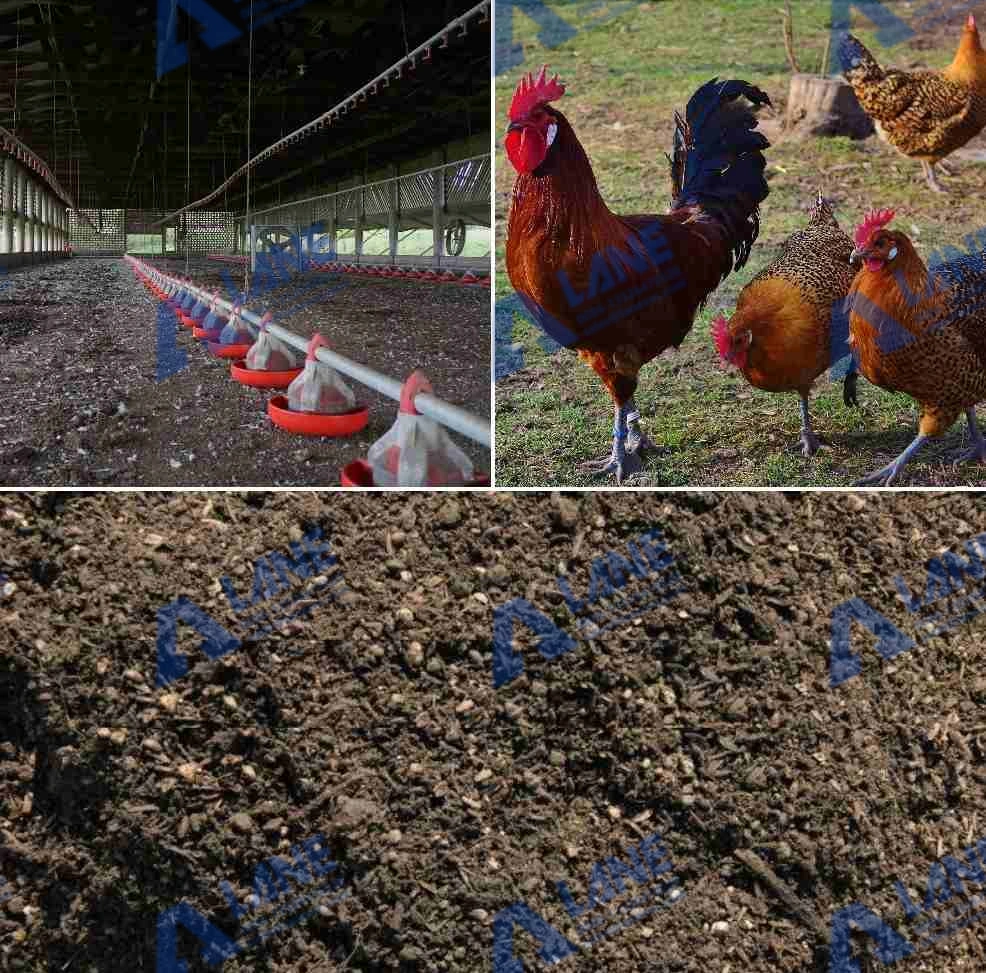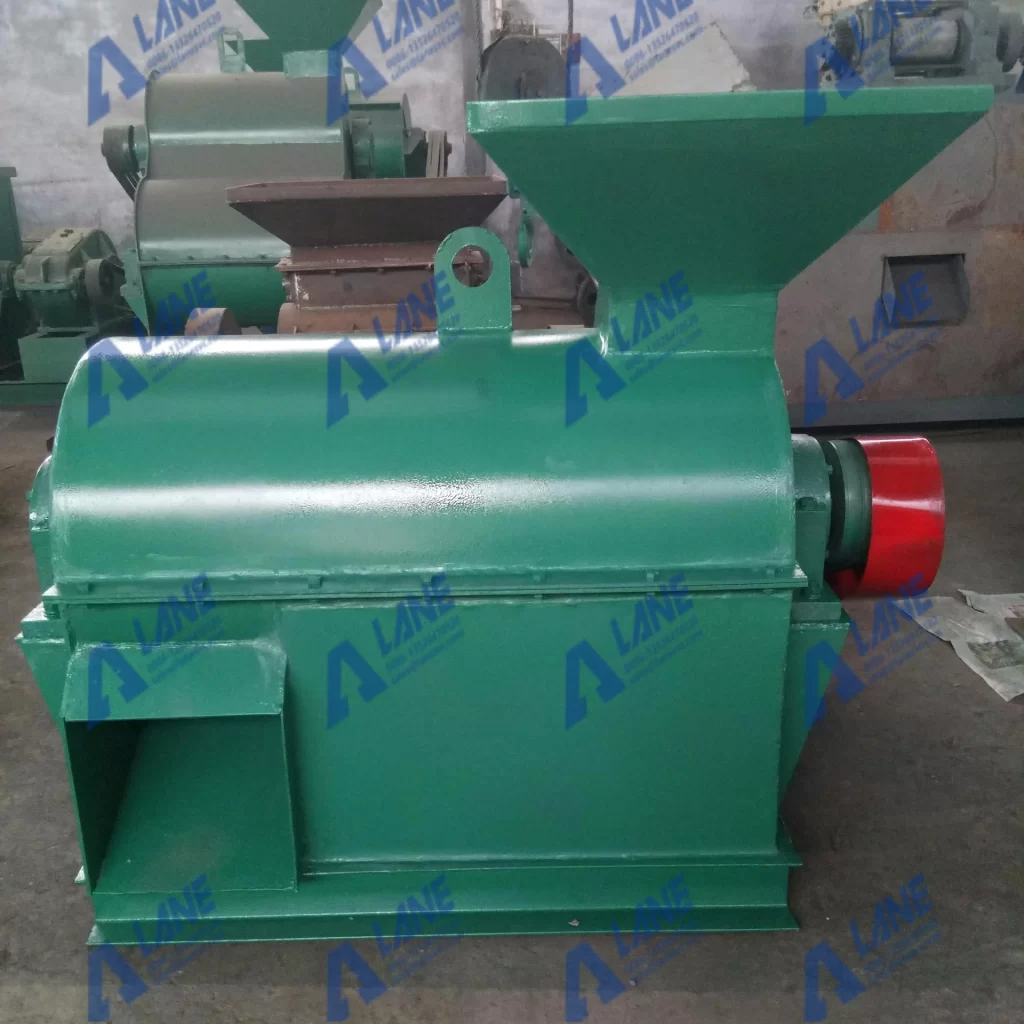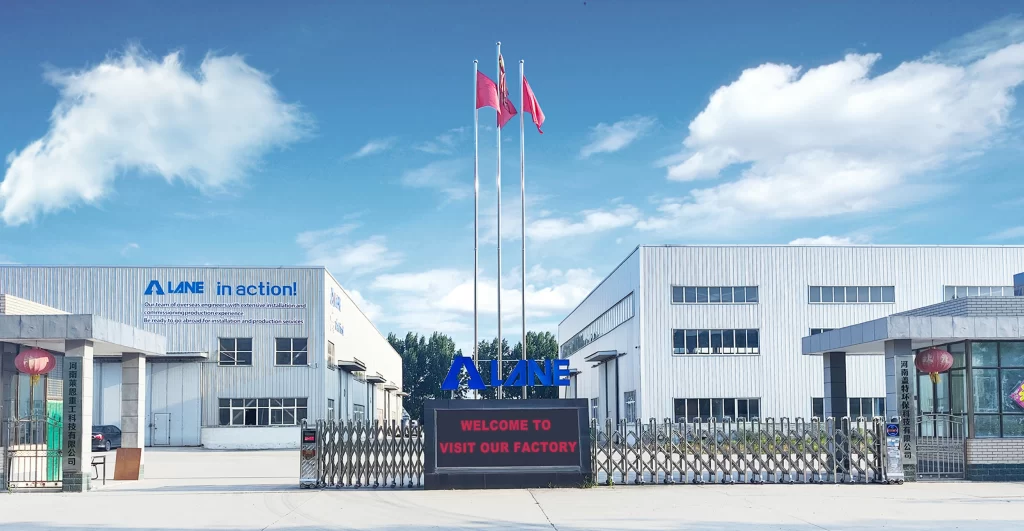Chicken droppings compost is one of the most nutrient-rich organic fertilizers available to farmers and gardeners. Packed with nitrogen, phosphorus, and potassium, it offers a natural boost to soil health and crop productivity. However, raw chicken manure is too strong to be applied directly—it can burn plants and release harmful pathogens. Composting transforms it into a safe, stable, and valuable fertilizer. With LANE’s advanced composting technology, turning chicken droppings into a market-ready product is easier, faster, and more profitable than ever.

Why Chicken Droppings Compost Matters
Using chicken droppings compost is more than just a way to recycle waste—it’s a step toward sustainable farming. Fresh chicken manure contains nearly twice the nitrogen of cattle manure and decomposes quickly, making it an excellent composting feedstock. Properly composted chicken droppings:
Provide slow-release nutrients for long-term soil fertility;
Reduce dependence on costly chemical fertilizers;
Suppress soil-borne diseases by encouraging beneficial microbes;
Improve soil structure, moisture retention, and aeration.
The Science Behind Chicken Droppings Composting
When composting chicken manure, the goal is to balance its high nitrogen content with carbon-rich materials like straw, sawdust, or dried leaves. This carbon-to-nitrogen (C:N) ratio fuels microbial activity and prevents unpleasant odors. During the active composting phase, temperatures rise to 55–65°C, which kills pathogens and weed seeds. Over 30–60 days, the compost matures into a dark, crumbly, earthy-smelling product.
| Nutrient | Typical Value in Chicken Droppings Compost |
| Nitrogen (N) | 2.5–3.5% |
| Phosphorus (P) | 1.5–2% |
| Potassium (K) | 1–1.5% |
LANE’s Smart Composting Solutions
LANE offers customized composting systems for the efficient and hygienic treatment of chicken manure. In fact, our organic fertilizer production line can integrate chicken manure composting with other organic waste recycling processes, enabling farms to produce multiple types of organic fertilizers within a streamlined system. This not only saves space and labor but also maximizes the return on investment.
Compost Turners:
Efficient aeration is critical for chicken droppings compost. LANE’s groove type compost turners and crawler type compost turners mix materials evenly, boost oxygen supply, and speed up decomposition.
Before composting, manure clumps and bedding materials can be broken down with LANE’s semi-wet crushers to create a uniform particle size, which promotes faster microbial action.

Screening and Packaging:
Finished compost passes through screening machines to remove large debris before being bagged or bulk-loaded for sale. LANE provides automatic packaging machines to speed up distribution.
Case Studies: Chicken Droppings Compost in Action
1. Java, Indonesia – Poultry Farm Transformation
In central Java, a medium-sized poultry farm was struggling with excessive manure buildup and odor complaints from nearby residents. The waste was simply piled up in open areas, creating both environmental and public relations challenges. The owner decided to install LANE’s organic fertilizer production line with a dedicated chicken droppings composting system.
With the integration of a LANE windrow compost turner, the farm reduced composting time from the usual 60–70 days to just 35–40 days. The machine’s efficient aeration and mixing allowed for faster microbial activity and more uniform decomposition. The finished chicken droppings compost was rich in nutrients and easy to handle, and it quickly found buyers among nearby vegetable growers and coffee plantations. By selling the compost in bulk, the farm generated an extra $12,000 in revenue per season while eliminating the odor issues that had previously hurt its reputation.
2. Punjab, India – From Waste Problem to Fertilizer Enterprise
In Punjab’s intensive poultry farming region, a family-owned farm producing eggs for local markets was overwhelmed with manure during peak production. Traditional disposal methods not only took up valuable space but also risked contaminating nearby water sources.
LANE provided a customized chicken droppings composting solution, including a compact organic fertilizer production line with a rotary drum compost turner. The system handled 10–12 tons of manure per day, processing it into stable compost within 30–40 days. Instead of treating manure as a waste problem, the family began marketing the compost as an organic fertilizer to nearby wheat and vegetable farmers. Demand quickly exceeded supply, and the family expanded the system with additional screening and bagging equipment. Today, the compost sales have become a reliable second income stream, helping the farm stabilize its earnings even when egg prices fluctuate.

Tips for Producing High-Quality Chicken Droppings Compost
Always mix manure with carbon-rich materials for balanced composting.
Keep moisture at 50–60% for optimal microbial activity.
Use a compost thermometer to track temperature and adjust aeration.
Allow compost to mature fully before application.
Investing in chicken droppings compost production is a win-win for farmers—reducing waste, lowering fertilizer costs, and supporting sustainable agriculture. With LANE’s composting equipment and expertise, you can transform poultry manure into a valuable organic fertilizer that boosts yields and profits.
For more details, please feel free to contact us.
Henan Lane Heavy Industry Machinery Technology Co., Ltd.
Email: sales@lanesvc.com
Contact number: +86 13526470520
Whatsapp: +86 13526470520